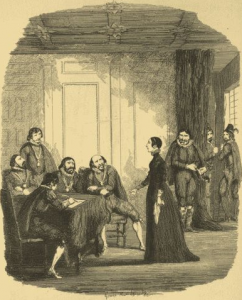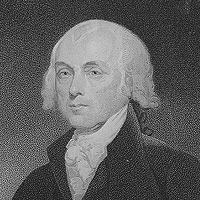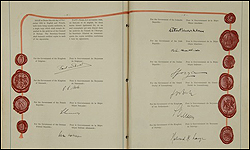 It certainly seems obvious and fair that when the government charges someone with a crime that the person be told what law he has violated and what he did to violate that law. That a government does not always conduct itself in a fair manner and that it needs to be reminded of the obvious is found in this provision of the Constitution’s Sixth Amendment:
It certainly seems obvious and fair that when the government charges someone with a crime that the person be told what law he has violated and what he did to violate that law. That a government does not always conduct itself in a fair manner and that it needs to be reminded of the obvious is found in this provision of the Constitution’s Sixth Amendment:
“In all criminal prosecutions, the accused shall enjoy the right … to be informed of the nature and cause of the accusation …”
That something as obvious and fair as the right to be informed of charges found its way into the Bill of Rights is an example of the concerns that some members of the Founding generation had of an overreaching government. In English history, such rights did not always exist.
Early Requirements in English Traditions
The roots of the right to be informed can be fairly traced to King Henry II in 1164.[1] There were dual court systems in England, one run by the king and the other run by the church. The church courts could proceed with charges like heresy on the mere unsworn suggestion of “ill fame” without the need for more detail. Henry instituted requirements that both the royal and church courts could prosecute someone setting forth the rule: “Laymen ought not to be accused unless through reliable and legal accusers and witnesses.” Henry upset the church, but won favor with his subjects.
Forty years later, when King John agreed to the Magna Carta and limits on royal power[2] clause 38 was included: “In future no official shall put anyone to trial merely on his own testimony, without reliable witnesses produced for this purpose.” This clause and the rule from 1164 are the beginnings of requirements for notice of charges to the accused. However, these two provisions do not provide directly for notice, but put limits on the bringing of charges.
Over Six Hundred Years of Trials Without Charges
 Over 400 years would pass before the right to be informed of charges was known to be asserted in an English court. The High Commission and Star Chamber brought in citizens and questioned them without stating the nature of the allegation. This practice was challenged by John Lilburne in 1637 with his refusal to answer questions without knowing the charges.[3]
Over 400 years would pass before the right to be informed of charges was known to be asserted in an English court. The High Commission and Star Chamber brought in citizens and questioned them without stating the nature of the allegation. This practice was challenged by John Lilburne in 1637 with his refusal to answer questions without knowing the charges.[3]
As colonists emigrated from Europe to escape religious persecution the exercise of tyrannical government in America they began adopting a requirement for informing an accused of the charges in detail. This requirement took root and became fundamental in America.
In 1776 the lack of detailed charges in prosecutions by King George found its way into a complaint in the Declaration of Independence:
“For transporting us beyond Seas to be tried for pretended offences…”
 Despite the alleged 600 year old English tradition, there was no secure right:
Despite the alleged 600 year old English tradition, there was no secure right:
“to be informed of the nature
and cause of the accusation…”
History had shown that a right so fair and obvious still needed protection from the proposed new government under the Constitution. James Madison’s proposal for this clause was adopted without debate and placed in the Sixth Amendment.
 Right to be Informed of Charges: An American Gift to the World
Right to be Informed of Charges: An American Gift to the World
There have been many gifts to the world from America’s Founding. This provision of the Sixth Amendment is among them. The right of an accused to be informed of the charges against him has found its way into multiple international agreements. An example is found in the international agreement that forms The Organization for Security and Co-operation in Europe (OSCE):
“6.3.1 The right to be informed of criminal charges
Article 14(3) (a) of the ICCPR[4] and Article 6(3) (a) of the ECHR[5] guarantee the right of every person accused of a “criminal charge” or “criminal offence” (See also 1.1) to be informed promptly, in detail, and in a language which the accused understands, of the nature (legal characterization of the offence) and cause (alleged facts) of the charge.”
Before America’s Sixth Amendment, what seems so fair and obvious had never been the firm commitment of any government in the world. It is now the standard for the world. This is the type of idea that should be encompassed by the phrase “American Exceptionalism”.
______________________________________________________________________________________________________
[1] From the “Constitution” of Clarendon.
[2] “Agreed” is somewhat a euphemism, John signed under mortal threat from his bishops.
[3] This stance made Lilburne famous, but he was none the less whipped, imprisoned and pilloried.
[4] International Covenant on Civil and Political Rights
[5] The European Convention on Human Rights






[…] Right to be informed of the charges […]